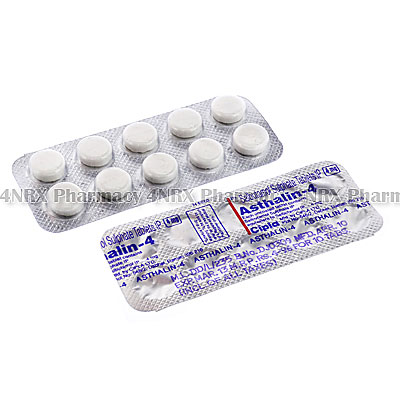 |
Home  Asthma Asthma  Asthalin (Salbutamol) Asthalin (Salbutamol) |
|
|||||||||
|
Asthalin (Salbutamol)
What is Asthalin (Salbutamol) used for? Asthalin (Salbutamol), also known as albuterol, is used to treat shortness of breath and wheezing occurring as a result of a variety of breathing problems, such as chronic obstructive pulmonary disease and asthma. This drug belongs to a class of medications known as bronchodilators, which work by relaxing the muscles and opening up breathing passages. This medication does not work immediately, and is not intended as a replacement for a quick relief inhaler. How should I use Asthalin (Salbutamol)? Asthalin (Salbutamol) comes in the form of tablets, which are taken orally. Adults may be directed to take 3 to 4 tablets per day. However, the dosage prescribed depends on the severity of the condition being treated, and the patient's response to treatment. It is essential to consult your physician before taking this medication so that the correct dosage can be prescribed. What are the side effects of Asthalin (Salbutamol)? Asthalin (Salbutamol) can cause side effects to occur, such as:
Patients who notice any persistent or worsening side effects should immediately consult their physician. This drug may also cause other rare, but more serious side effects to occur. Seek immediate medical assistance if you notice chest pain, an irregular heartbeat or seizures. Please Note Strictly follow all instructions provided to you by your physician or pharmacist while using Asthalin (Salbutamol). Optimum and safe dosage can differ based on the patient and the condition being treated. As this medication may be unsafe for certain patients, it is essential you always inform your physician if you are pregnant or breastfeeding, as well as if you have any allergies, other illnesses, or ongoing health conditions, and if you are taking any other form of medication, supplements, or herbal products. Your physician may also prescribe a quick relief inhaler and instruct you to carry it with you at all times. Immediately seek emergency medical care if you have any allergic or hypersensitive reaction. Common signs of a reaction include hives, swelling, skin rashes, chest pains, as well as trouble breathing or swallowing. 

|
|||||||||||||||||